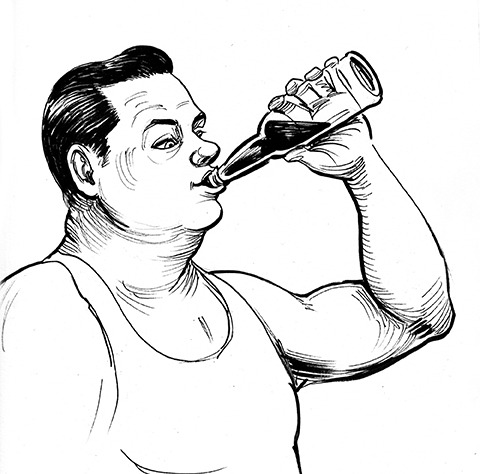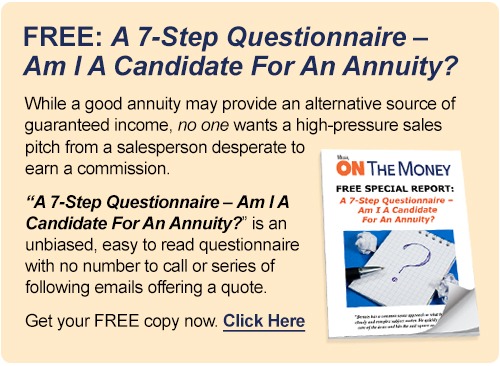 Friend Courtenay W. sent a cool email using a small business analogy to help explain today’s economic mess. I modified it, hoping to make things clear.
Friend Courtenay W. sent a cool email using a small business analogy to help explain today’s economic mess. I modified it, hoping to make things clear.
Bob’s Big Wheel Bar is in Motor Home City, surrounded by several motorhome manufacturers. For decades, factory workers frequented Bob’s Big Wheel Bar, many cashing and spending their paychecks on Fridays.
The 2008 bank bailout and economic downturn caused unemployment in Motor Home City to skyrocket.
Many of Bob’s regulars became unemployed alcoholics, arriving early and drinking late. Unemployed, with little money, they nursed their drinks for hours chatting with their buddies. Bob needed more help to work longer hours and needed revenue to pay for it.
While Bob preferred his customers use credit cards, many didn’t have one or had reached their credit limit. He devised a plan for customers to “drink now and pay later.” Customers ran a tab, creating a loan, with the promise to pay later.
He added a big sign that he accepted government debit cards, adding more new patrons; many immigrants who spoke different languages. His “drink now, pay later” strategy became popular; soon Bob had the biggest bar in Motor Home City.
By extending customers’ credit, no one complained when he regularly raised prices for shots, beer, and wine. His cute waitress would ask, “Time for another round?” Customers smiled and responded, “Sure, why not?”
While Bob saw a huge jump in profit, he had a cash flow problem. He asked his bank for a large increase in his credit line, using his accounts receivable as collateral.
The young, dynamic loan officer understood accounts receivable constitute valuable future assets, and regularly granted Bob more credit. He wasn’t concerned that Bob’s collateral was promises from unemployed alcoholics.
Bob’s accountant, noting increased profits, suggested Bob use part of the bank payments to regularly give himself a nice bonus.
His bank is a branch of one of the top bank/investment companies in the country. At their corporate headquarters, expert traders recognized a way to earn big money.
They packaged these customer loans into BOOZE BONDS, coerced the rating agency into a AA (investment grade) rating, creating the illusion of safety. They packaged them with similar bonds into fee-based mutual funds. These “securities” were actively promoted to investment clients, insurance companies, pension funds and traded on international securities markets.
Investors don’t really understand the securities being sold to them. AA-rated BOOZE BOND funds were truly Alcoholics Anonymous – debts of unemployed alcoholics – and their trusted brokers never bothered to check.
Interest rates continued down as the Federal Reserve, (owned by these casino banks) continued to flood the system with low-cost money (Quantitative Easing). Bond prices rose, Bob and the casino banks were making a lot of money.
As Bob was only making interest payments, his credit line was increasing rapidly, backed by more IOUs from his unemployed, alcoholic customers. A high-level bank risk manager took note and summoned Bob to his office.
He told Bob he is uncomfortable raising his credit limit higher, and he is raising interest rates. Bob pleads with the banker; he can’t pay higher interest or pay down the debt. While Bob still had some paying customers, he asked for more time, promising he would collect from his delinquent customers.
Bob began asking for payment. They smiled, promised to pay up, signed their tab and never showed up again. They were broke, unemployed alcoholics.
Bob was in a panic – and received a timely stroke of good fortune. The pandemic hit.
While many restaurants closed, much like a prohibition speakeasy, his customers remained loyal. The unexpected windfall of unemployment and government stimulus checks helped them pay down some of their debts. The government put a moratorium on rent. Bob’s customers drank, paying Bob instead of their landlord.
Bob paid down his bank debt, the bank was pleased, further increasing Bob’s line of credit. They breathed a sigh of relief; the crisis was averted.
Is this a parallel to the 2008 crash?
In 2008 the government required banks to make a percentage of loans to historically uncreditworthy buyers. No money down, no problem! When adding origination fees, it wasn’t unusual for a loan to be more than the value of the home or other collateral.
The casino banks packaged the debts, coerced credit agencies into phony ratings, and sold them to investors and government agencies.
Lenders, no longer concerned about the creditworthiness of the borrower, wrote the loan and immediately sold the risky ones. Should the buyer default, it wasn’t their problem.
Adding fuel to the fire
Major corporations also jumped into the game. Combining low interest rates with questionable agency ratings, they borrowed trillions to buy back their stock, pay dividends and award themselves nice bonuses. They sold debt to line their pockets.
Much like BOOZE BONDS, casino banks packaged risky corporate bonds and peddled these “securities” to the public, the credit risk was no longer their problem.
Allowing businesses unwarranted credit creates “Zombie Companies” – companies that don’t generate enough profit to service their debts. To stay afloat, much like Bob, they need regular infusions of cash.
When the debtor eventually defaults, they file for bankruptcy, putting more people out of work – creating a domino effect; suppliers don’t get paid, and they too go bankrupt.
A day of reckoning?
What about an economic downturn? What happens when billions of corporate and private BOOZE BONDS can’t be repaid?
Casino banks, (aka, the Fed) argue that freezing credit would cause bond prices to plummet, putting the entire market in grave danger, preventing banks from issuing new loans hampering economic activity.
Trillions in high-risk bonds are held in 401k, IRA, pension funds and insurance companies’ investment portfolios. A bond market collapse would destroy much of the nation’s wealth.
The banks and politicians can’t have that….
The problem creators are authorized by the government to fix it??
| “The history of the last century shows…the advice given to governments by bankers…was consistently good for bankers, but was often disastrous for governments, businessmen, and the people generally.”
— Carroll Quigley |
Their rescue plan…
Congress authorized the Fed to create trillions more Magic Money; used to buy the risky “securities” they created and promoted, from all areas of the market. The “securities” are now held by the Fed.
Who is the big winner of this multitrillion-dollar, no-strings-attached cash infusion authorized by the government? The banks that own the Fed. David Stockman reports:
“The Fed is the most profitable company in the world by far.
While it owns nothing except ultra-low-yielding government bills, notes, bonds and GSEs, in 2020 it nevertheless made more net income than Apple, Microsoft, JP Morgan, Facebook, McDonald’s, Coca-Cola, Walmart, Home Depot, Intel, Johnson & Johnson, Bank of America, Nike, Visa, Amazon, and Netflix combined.
Yes, combined!
The $322 billion of net profit was not a COVID-year aberration. The Fed has actually earned an average profit of $350 billion per year for the last decade.”
I Googled, “What happens to the profits at the Federal Reserve?” Investopedia reports:
“The Federal Reserve is a nonprofit entity. After its expenses are paid, any remaining profits are paid to the Department of the Treasury.
…. It’s a relationship that produces a considerable amount of money. The Federal Reserve contributed an estimated $54.9 billion to the Treasury in 2019.”
With no accountability, what the hell goes into almost $300 billion in expenses?
The debt treadmill is speeding up
Historically the Treasury Department auctioned government bonds at free market interest rates to finance debt. Today, they sell what they can at historic low rates, and the Fed magically prints the shortfall. Free market interest rates no longer exist. Many foreign governments stopped lending us money while allowing their current holdings to mature.
| Much of today’s bond market debt is as safe as AA BOOZE BONDS, promises from unemployed alcoholics. That risk, along with trillions in government deficit spending, is now on the Fed’s balance sheet; the default risk is the responsibility of unsuspecting taxpayers. |
As the Fed continues to pluck trillions from the Magic Money Tree, the value of the currency declines – it’s called inflation. High inflation creates its own domino effect; investors flee dollar-denominated assets, destroying even more wealth.
In turn, the Fed creates more money out of thin air, buying even more government debt, adding it to the Fed’s balance sheet. Taxpayers are on the hook for it all.
What could possibly go wrong?
- What happens when China and Russia lead a movement to diminish the dollar’s role as the world’s reserve currency?
- When the landlords go bankrupt, will they go to Bob’s Bar and drink with their former tenants?
- What happens when the Magic Money becomes worthless?
Ayn Rand sums it up:
“All depressions are caused by government interference and the cure is always offered to take more of the poison that caused the disaster.
Depressions are not the result of a free economy.”
In the words of friend Chuck Butler, “Got Gold?” It is my antidote of choice.
 For more information, check out my website or follow me on FaceBook.
For more information, check out my website or follow me on FaceBook.
Until next time…
Dennis
“Economic independence is the foundation of the only sort of freedom worth a damn.” – H. L. Mencken
Affiliate Link Disclosure: This post contains affiliate links. If you make a purchase after clicking these links, we will earn a commission that goes to help keep Miller on the Money running. Thank you for your support!






In our current system, everything is priced in dollars. As I see it, the dollar will collapse before the elites can finish setting up their control grid.
I worked in the bar business for many years. One of the first things I learned was never cash checks, and never let a customer run a bar tab.
Most bar regulars are broke alcoholics, whether they are unemployed or not. (Heck, most people are broke.) When they owe you any kind of money, and it is a choice between paying you or spending it on booze, they will always go elsewhere and spend it on booze.
Same thing with day laborers and odd-job folks. If you pay them up front, they won’t finish your job. They’ve already spent your money, and will do the next job, because that person still has money to give them for it.
Neither of these types of people are actually malicious. They both intend to pay or to finish the work. But economics “prevents” them from doing so.
I suspect the only reason people make payments to credit cards is that they are afraid that if they don’t, the card will no longer work for them. We’ve been depending upon credit instead of wages since the seventies.
Plus, if you don’t use the card, it gets cancelled. Didn’t use a biz Citgo for 90 days, cancelled. Same for a biz Visa from Wachovia 20+ yrs. ago.
Oh well. Thought this was going to be about Elkhart, IN. Or Dacron, OH, where VanHusen’s were made by the family scion-to-be, Woolworth VanHusen.
The key to apartment 2505 doesn’t work no moar….